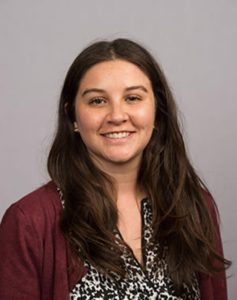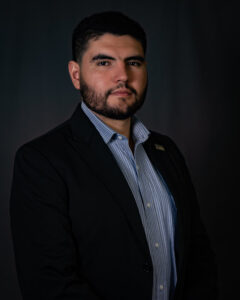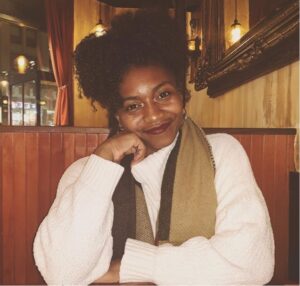 I was born and raised in Santiago, the capital of Chile. I attended Diego Portales University to get my bachelor degree, with a major in Political Science. After graduation, my first job was at CIEPLAN, a Chilean think tank focusing on national and Latin American politics and economy. In the following years, I had several and very different jobs: I was an analyst for a market research consulting company; a member of the gender unit for Michelle Bachelet’s Presidential Campaign; a consultant at the Office for the South Cone of Latin America of the International Labor Organization (ILO); and an advisor at the Chilean Ministry of Interior. During this period, I also worked as a teaching assistant, tutor and research assistant at the School of Political Science of my university.
I was born and raised in Santiago, the capital of Chile. I attended Diego Portales University to get my bachelor degree, with a major in Political Science. After graduation, my first job was at CIEPLAN, a Chilean think tank focusing on national and Latin American politics and economy. In the following years, I had several and very different jobs: I was an analyst for a market research consulting company; a member of the gender unit for Michelle Bachelet’s Presidential Campaign; a consultant at the Office for the South Cone of Latin America of the International Labor Organization (ILO); and an advisor at the Chilean Ministry of Interior. During this period, I also worked as a teaching assistant, tutor and research assistant at the School of Political Science of my university.
During this past summer, I interned at CARE USA, in their Washington DC office. I worked with the Competitive Bids Unit, elaborating a report that analyzed the FY2017 Congressional Budget Justification for International Affairs and its consequences for the organization’s priorities and funding opportunities.
Currently, my policy focus is on development and inequality, social policy and gender.
Q – Public policy isn’t one of the most obvious career paths. Describe the path that brought you to it.
As a political scientist, I had a very intense research-focused and academic training. I spent most of my undergrad period, and some years after graduation, researching about political systems and institutions, elections’ outcomes and women political representation. Even though I care a lot about these issues and I believe they are of great importance for countries and governments, I felt my work, and political science in general, had a very abstract approach and it was directed mainly to other researchers and scholars. I have a genuine interest and passion about inequality and social struggles and I felt that my training in political science was not enough to help communities and vulnerable populations. My experience working for the ILO and later for the Chilean government confirmed this disposition and it became clear to me that I needed training in public policy. My decision to attend policy school, therefore, stemmed from a strong desire to help communities and to contribute to achieving tangible outcomes for them and for the development of my country.
Q – What’s on your reading list this week? What are you doing for homework?
For this week, I have many assignments for my “Social Activism, Democracy, and Globalization: Perspectives of the Global South” class. These include a review and planning assignment, a group presentation and readings related to the theme of trauma, memory, empathy, and everyday violence. I also have a group presentation on Wednesday for my Values and Ethics class.
Q – Favorite quote?
“La gratitud, como ciertas flores, no se da en la altura y mejor reverdece en la tierra buena de los humildes”
In English it can be translated like: “Gratitude, as certain flowers, does not grow in altitude and better grows green again in the good soil of the humble”. It is from José Martí, a Cuban thinker and independence leader.
Q – If you could live anywhere in the world, where would it be?
This might sound like an obvious and boring answer but I would live in Santiago. Or any other Chilean city. The time that I have spent abroad has made me realize how connected I feel with my country and everything that relates to it: my family and loved ones, the food, the people, the natural scenery and the culture. Some things that felt so common like opening the window of my apartment and see the Andes Mountains, now I miss terribly. I haven’t had the chance to go back in more than a year so I’m very excited to visit during the holidays and share some quality time with my friends and family.










 I was born and raised in Santiago, the capital of Chile. I attended Diego Portales University to get my bachelor degree, with a major in Political Science. After graduation, my first job was at CIEPLAN, a Chilean think tank focusing on national and Latin American politics and economy. In the following years, I had several and very different jobs: I was an analyst for a market research consulting company; a member of the gender unit for Michelle Bachelet’s Presidential Campaign; a consultant at the Office for the South Cone of Latin America of the International Labor Organization (ILO); and an advisor at the Chilean Ministry of Interior. During this period, I also worked as a teaching assistant, tutor and research assistant at the School of Political Science of my university.
I was born and raised in Santiago, the capital of Chile. I attended Diego Portales University to get my bachelor degree, with a major in Political Science. After graduation, my first job was at CIEPLAN, a Chilean think tank focusing on national and Latin American politics and economy. In the following years, I had several and very different jobs: I was an analyst for a market research consulting company; a member of the gender unit for Michelle Bachelet’s Presidential Campaign; a consultant at the Office for the South Cone of Latin America of the International Labor Organization (ILO); and an advisor at the Chilean Ministry of Interior. During this period, I also worked as a teaching assistant, tutor and research assistant at the School of Political Science of my university.